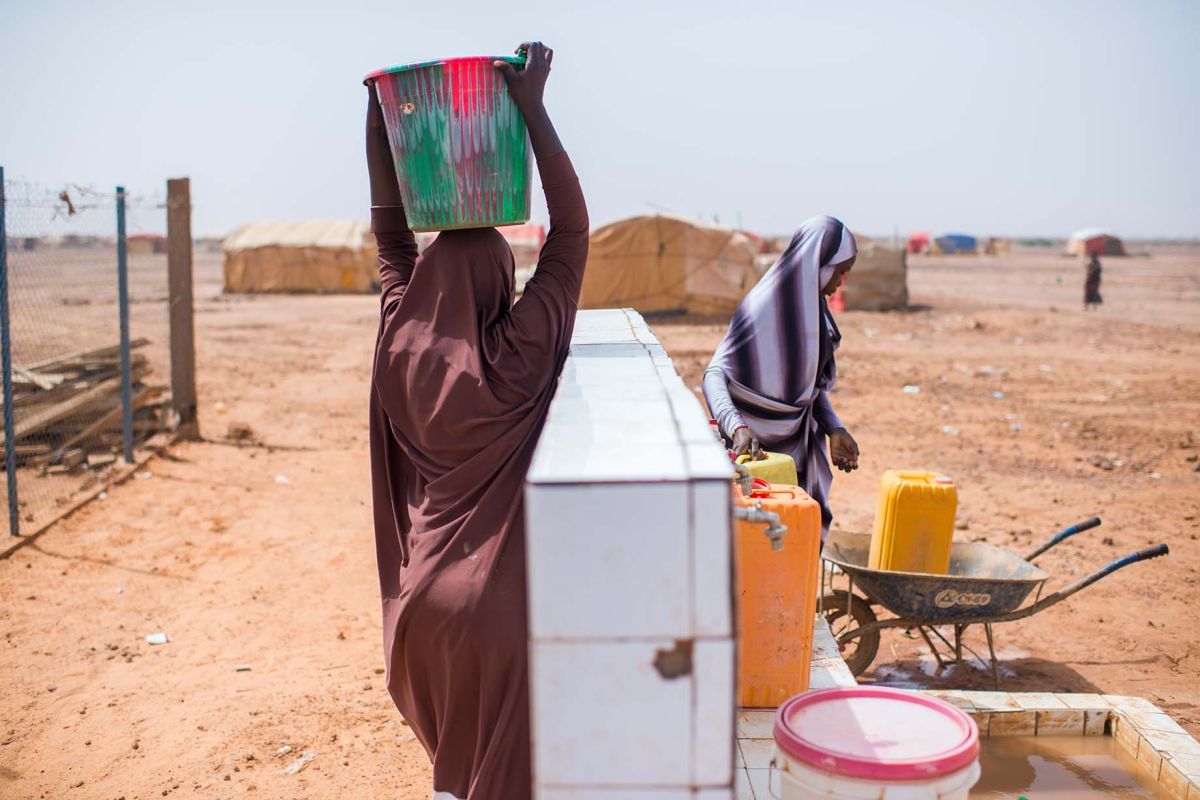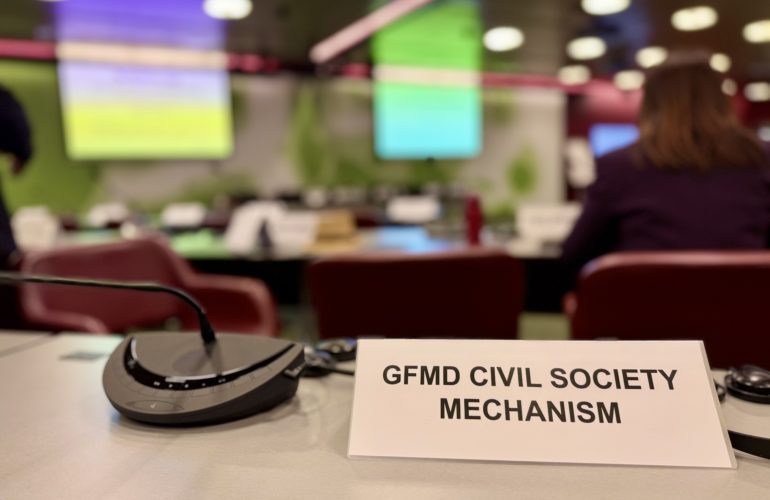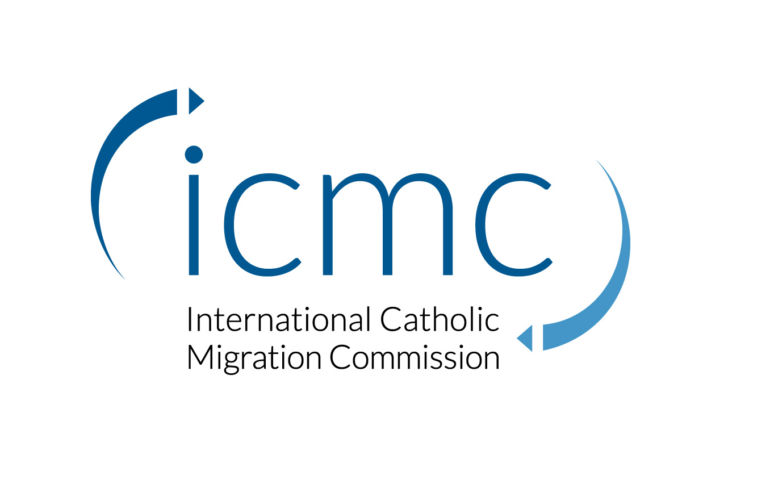Ensuring Protection for People Displaced by Climate Change
International coordination and a focus on protection are needed to address climate change-related displacement, concludes a virtual event on human mobility driven by climate change.

By Rachel Westerby (*)
“A migration-climate nexus is emerging, and the international community must work toward a coordinated response, not least to guarantee protection.”
These opening words from the French ambassador for Migration, Christophe Léonzi, neatly summed up the central aim of the virtual event The Road From COP26 To the International Migration Review Forum: Protecting people displaced across borders in the context of disasters, the adverse effects of climate change and environmental degradation. Co-organized by ICMC with ACT Alliance, the Platform on Disaster Displacement, the Civil Society Action Committee, Secours Catholique (Caritas France), and the Climate, Migration & Displacement Platform, the event took place online on 24 February 2022.
Climate change and extreme climate disasters are a threat for all humankind and present increasingly significant challenges for human wellbeing. Today, the impact of these phenomena is felt mainly by communities in vulnerable regions already struggling with their capacity to adapt to global developments, with significant impacts for migration and people on the move.
Stresses on oceans and land directly impact livelihoods and food security, deepen exposure to risk, and threaten efforts to achieve sustainable development. The consequences of climate change compel people to leave their country of origin and affect patterns of migration. The UN Refugee Agency (UNHCR) estimates that the number of people displaced by natural disasters around the work will increase to at least 50 million by 2050.
Although international cooperation and initiatives to address climate change and migration have increased in recent years, there is still no coordinated approach to addressing the impact of climate change on human mobility. How can we harness the current momentum and interest to work toward this approach and ensure protection for people displaced due to the consequences of climate change?
The Road from COP26 event sought to build links between international frameworks for migration and climate change by:
- Identifying outcomes of the 2021 UNFCCC Climate Conference of the Parties (COP26) to be brought forward for discussion at the upcoming 2022 International Migration Review Forum (IMRF). The IMRF is held every four years to take stock of and plan for the implementation of the Global Compact for Safe, Orderly and Regular Migration, the first UN-led international agreement on migration management, adopted by 152 States in December 2018. Held in Glasgow, Scotland, in the fall of 2021, COP26 was a global event through which States set goals to reduce the impact of climate change.
- Developing recommendations on protection to be taken forward at the IMRF, which will take place at the UN from 17-20 May 2022, as well as at the Global Forum on Migration & Development (GFMD) process, whose next co-chairs as of mid-2022, France and Senegal, have centred their joint chairmanship around climate and displacement.
Expert presenters were drawn from civil society, national governments, academia, and UN agencies, and from countries including Bangladesh, France, Kenya, and Colombia. Over 200 participants attended the event, and discussions highlighted several key recommendations for addressing the impact of climate change on human mobility in the coming years.
1. Improved, expanded, and more sustainable pathways to protection
A key focus in the policy debate and roundtables at the IMRF should be on enhancing the availability and flexibility of pathways for regular migration in the context of the adverse effects of climate change, disasters, and environmental degradation.
There are multiple examples of successful mechanisms to enable people displaced by climate change to enter other countries, found mainly in the developing world. These pathways to protection remain limited, however, and often rely on ad-hoc ministerial decisions. To provide effective protection, pathways for people displaced by climate change must be sustainable, reliable, and accessible and include post-arrival measures such as training and social welfare.
States can grant humanitarian visas to provide rapid entry and protection. It is crucial that States create a legislative basis for humanitarian visas that enables them to be implemented in a flexible and accessible way and guarantees post-arrival support and opportunities.
2. Integrate climate-induced displacement into existing legal and policy frameworks for migration and protection.
The impacts of climate change are often one of several different drivers in individuals’ decision to migrate. Climate-induced migration should therefore be mainstreamed into existing frameworks.
3. Keep internal climate-induced displacement on the agenda
The vast majority of people displaced by climate change move internally within their country of origin without crossing an international border, sometimes several times a year. They also require protection and support to reduce the impact of this displacement and rebuild their lives and communities.
4. Ensure the participation of countries most affected by climate change
To be effective, global processes and fora must include those countries most severely affected by climate change, climate-related disasters, and associated migration. COVID-19 has severely impacted the resources and capacities of such countries, and the international community must address this issue via direct support.
5. Acknowledge and resource the crucial role of civil society
Civil society organizations are often the first to act in climate-related emergencies, supporting affected communities while state responses begin to be implemented and take effect. They are also crucial to building long-term resilience in regions most affected by climate change.
Civil society organizations’ work must be adequately and reliably funded for this crucial function to be sustainable. Civil society actors must also be involved as key, equal stakeholders in international fora and discussions on climate change and migration.
The Global Forum on Migration and Development (GFMD) is an international process through which State, civil society, local government, business, and youth actors can work together to shape migration-related policies. The GFMD is invited to share its expertise during the Global Compact for Migration’s International Migration Review Forum (IMRF), which takes place every four years. Since 2011, the International Catholic Migration Commission (ICMC) coordinates civil society participation in the GFMD. The first IMRF will be held in New York from 17 – 20 May 2022.
*Rachel Westerby is an independent writer and researcher on migration, refugees and integration



